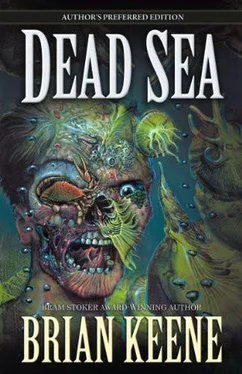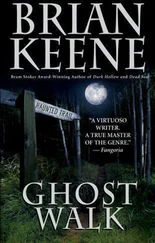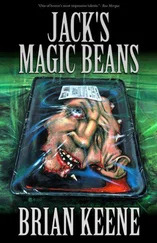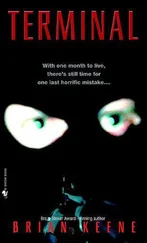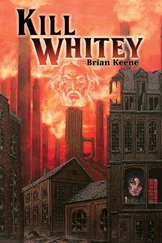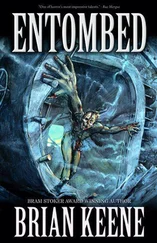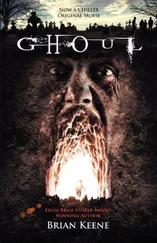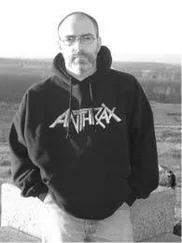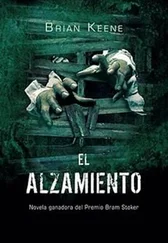He was silent for a moment, puffing on his pipe. He seemed lost in thought.
“Its because of these archetypes,” he continued, “that everyone shares certain common conceptions about people; for example, in every culture that has ever existed, certain attributes like courage, strength, and fortitude have been attached to the ideal image of the warrior. All human beings, at an unconscious level, know that the figure of the warrior is part of our human makeup, and as such, we recognize the certain attributes that make up the warrior. A soldier on the news. A basketball player in the playoffs. We respond to these. And like it or not, it’s our job to either succeed or fail at living up to those attributes. Do you see?”
“When we first met, you said I was an archetype.”
“You are, indeed. You’re living up to those attributes—embarking on a journey of self-discovery. Even as the world falls into ruin, Lamar, you are being reborn. That’s a classic story; one that appeals to all mankind. You are the hero.”
“I’ve got to be honest, Professor. I don’t feel like much of a hero right now. I couldn’t even shoot the crazy fucker who killed Turn.”
“You may not feel like a hero. And yet, you are. Basically, the hero is a universal archetype that embodies the best and most revered qualities of a culture or society. However, the hero is not simply born. It is never that simple. The hero must be created, forged, if you will, in a fire of turmoil and trials. To do this he must go on a quest, which is what you’re doing right now.”
“A quest, huh? So, what am I looking for?”
“Well, my favorite authority on this subject, Joseph Campbell, referred to the quest as the hero’s journey. Different journeys have different treasures at the end. In your case, you are on a quest for self-discovery Campbell believed that, regardless of your culture or time frame, the basic structure of this journey is the same, and thus an archetype. He called it a monomyth. In its most basic form, during his or her quest, the hero experiences a call to adventure. They typically refuse or are hesitant about answering the call. They receive supernatural aid and cross the threshold, undergoing trials and tribulations before returning home bearing gifts or boons for their people.”
“That doesn’t sound like much of a self-discovery, Professor.”
“Well, perhaps not. But something that is very important to the formation of the hero is his journeying away from home and the ordinary—and entering a world of unfamiliarity, or what Campbell called ‘supernatural wonder.’ I think you’ll certainly agree that is what you’re currently experiencing. Wouldn’t you say? Think about it. You’ve left home, abandoned everything you ever knew. You’ve been thrust into a whole new world, left to care for a new family—”
“They’re not my family,” I interrupted. “I’m not the best person to be taking care of kids.”
“And yet you are, and they want you to be that person. And you haven’t shirked that responsibility, even though you could have done so very easily. You are here for them. You continue to exist for them, whether you even realize it or not. That’s a very selfless act, Lamar. And that’s an important aspect of the monomyth—the hero’s selflessness. He may first undergo his journey for his own self, but he returns and brings wisdom and order to his peo—ple. Thus the hero is a creation for all the people, not just the individual. Mythic heroes bring back large, worldly benefits. Things that affect everyone, not just the microcosm of a small community.”
“But you just said I’m only here for Tasha and Malik. They aren’t everyone.”
“Perhaps not.” He smiled, and then patted my hand. “But perhaps they are. The last two children left on earth? That’s a future generation, my friend. The last generation, if we’re not careful.”
“Last of a dying breed,” I muttered.
The wind shifted again, blowing his pipe smoke into my face. I breathed deep, savoring the aroma. I wasn’t a smoker, but the smell of the tobacco reminded me of when things had been normal—of a world without Hamelin’s Revenge.
“The important thing to remember,” Professor Williams continued, “is that the hero is created as an end result of the journey. He is a product of what happens on the quest. The events that shaped him, changed him, made him less concerned with himself and more concerned with those around him, the larger society. These are the important part. Heroes are not simply born, Lamar. They are forged! And how they are forged makes all the difference.”
I thought it over and shrugged. “I gotta be honest, Professor. I still don’t feel like much of a hero.”
“No? Then how do you see yourself?”
“I feel like a failure. A wimp.”
“Trust me, my friend, when I tell you that you are neither of those things.”
“I kind of see Mitch as the hero.”
“Mr. Bollinger is the warrior—another psychological archetype. The warrior is a representation of a pattern of behavior favoring physical confrontation and prowess to achieve one’s goals. The warrior can use his physical powers in a positive way to aid others and society. When you were in school, did you ever read the stories of Beowulf, Achilles, or elder Gilgamesh?”
“Professor, where I went to school, our most important concern was getting through the day without getting shot. We didn’t have many books. Books were like kryptonite to most of my classmates.”
The professor removed his pipe, tossed his head back, and laughed.
“Yes, that’s one of the reasons I was so looking forward to retirement. Trust me, Lamar, that particular loathing of literature is not confined to just inner-city schools. It seems to be present across the nation. Very sad.”
“Yeah.”
“Well, Achilles and the others I mentioned all used their powers to aid their families and loved ones.”
“So you’re saying Mitch is part of our family? He’s the warrior to my hero, and we’re both looking out for the kids?”
“Exactly.” He put his pipe back in his mouth. “However, some warriors used their prowess for selfish reasons. Grendel and young Gilgamesh are cautionary examples of this. Luckily for you, Mitch doesn’t fall into that subarchetype.”
I shook my head. “I still think Mitch is the hero. I mean, he saved us all back in Baltimore. If it wasn’t for him, Tasha, Malik, and I would all be zombies now.”
“Well, I humbly disagree. However, if it eases your mind, the archetypes like warrior, king, and trickster are rather fluid. One can be warriorlike and tricksterlike, a king and a fool. Remember, they represent aspects of personality which individuals tap into or manifest in times of trouble. The hero manifests not aspects of personality, but a total person, the summation of all the qualities that have allowed him to successfully complete the hero journey and safeguard his people or bring back gifts. Going even further, I think the archetypes not only provide a guide for our personal behavior, but also role models for us, as humans, to live up to. At an unconscious level, when the time is appropriate, like right now, we strive to live up to the expectations of the warrior that have been instinctively passed down to us since the dawn of man. That’s why we fight when all hope is lost; to not fight would be to deny part of the collective memories that define humanity. We fight because that is who we are. We fight because we are human.”
“And what are they?” I cast my hand toward land, even though we couldn’t see it in the darkness.
“The dead?” Professor Williams frowned. “Road-kill that doesn’t have enough decency to lie down and rot in peace. The waste products of our souls. They’re walking toilets, Lamar. Nothing more.”
Читать дальше
